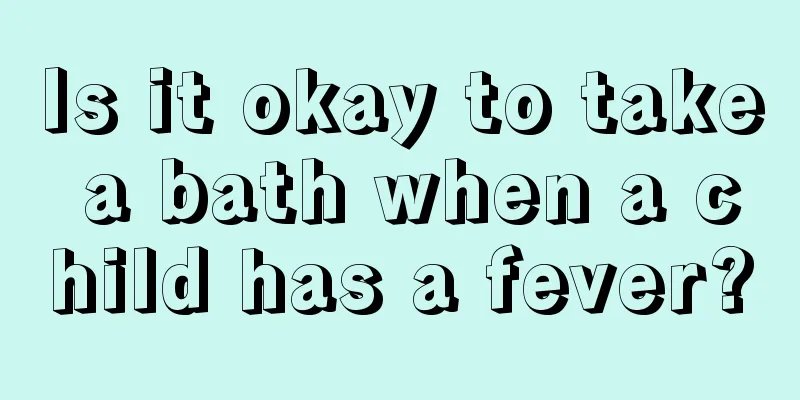Reasons for excessive sweating on the head of children

|
It is every parent's wish that their children grow up healthy and happy. However, in real life, due to their poor resistance, children often have some minor problems, which also makes their parents very worried. For example, your forehead is always sweating, especially when you are sleeping. What is the reason for this? Let’s take a look at the reasons why children sweat a lot. What should I do if my child’s head sweats a lot? Babies sweat more than adults. Sweat is secreted by the sweat glands in the skin, which are one of the important structures of the human skin for regulating body temperature. Children have active metabolism and a lot of activity, especially infants and young children, whose skin contains more water and has more microvessels on the surface of the skin, so more water evaporates from the skin. Besides, children have poor self-regulation ability for cold and heat, and they like to sweat even at night, which is normal. My baby sweats a lot. Is it normal or abnormal? Excessive secretion of a baby's sweat glands is called hyperhidrosis. There are two main reasons for excessive sweating in babies: Physiological hyperhidrosis and pathological hyperhidrosis. Normal reasons for babies' excessive sweating are mostly normal, which is medically called physiological hyperhidrosis. For example, the hot weather in summer causes children to sweat excessively; infants and young children sweat on their heads and necks when they just fall asleep, but the sweat decreases after they fall asleep; babies sweat a lot after playing, running and jumping, but are generally in good condition; in winter, babies wear too many clothes, the quilts are too thick at night, and the indoor air-conditioning temperature is too high, causing babies to overheat and sweat a lot. Some babies sweat only on the head and forehead, commonly known as "steamer head". This is also physiological sweating and parents do not need to worry. Identify abnormal causes of pathological hyperhidrosis in children. Excessive sweating caused by certain diseases in babies may manifest as a lot of sweating when they are quiet or after falling asleep at night. Excessive sweating can wet the pillow and clothes, which is called "pathological sweating." Such as active rickets in infants and young children, active tuberculosis in children, hypoglycemia in children, excessive dose of antipyretics and mental factors, such as excessive excitement and fear. Some babies have endocrine diseases (such as hyperthyroidism, etc.), which can also cause pathological sweating. In addition to excessive sweating, each disease also has many other disease manifestations. Parents need to take their baby to the hospital for further examinations. (1) Active rickets. Babies under one year old sweat a lot. If they lack outdoor activities and sun exposure, and do not add cod liver oil and calcium powder in time, parents should observe whether the baby has other manifestations of rickets in addition to sweating, such as crying at night, crying and shaking the head on the pillow while sleeping, resulting in hair loss circles on the back of the head (also known as occipital baldness), ping-pong head (the bone in the occipital bone becomes soft, and it feels like touching a ping-pong ball), square skull (the forehead is protruding and the head is shaped like a square box), and a large anterior fontanelle that closes late. Parents should take their baby to the hospital for examination by a doctor to make a clear diagnosis. 2) Active tuberculosis in children. Babies often sweat a lot not only in the first half of the night, but also in the second half of the night before dawn, which is called "night sweats". At the same time, there are poor appetite, low fever in the afternoon (some have high fever), flushed face, weight loss, and some have cough, enlarged liver and spleen, swollen lymph nodes and other symptoms. There is often a history of contact with tuberculosis, and the elderly, parents or nannies in the family suffer from tuberculosis. (3) Hypoglycemia. It is often seen in the hot summer when babies sweat a lot, refuse to eat at night, and feel listless when waking up in the morning. The children show symptoms of sadness and restlessness, pale complexion, cold sweats, even profuse sweating, and cold limbs. (4) Pediatric endocrine diseases (this type of disease is less common in causing excessive sweating). For example, children with hyperthyroidism are mostly school-age children, mostly girls. It may manifest as excessive sweating, irritability, increased appetite without weight gain, panic, heart palpitations, and even bulging eyes. Babies with obesity also sweat easily, and they sweat a lot when they move or walk. The above is an introduction to the reasons why children sweat excessively on their heads. It can be seen that there are many reasons why children sweat excessively on their heads. In fact, parents should keep the place where children sleep ventilated so that air can flow freely to prevent children from sweating excessively. If it is pathological sweating, it should be checked and treated in time to avoid affecting the health of the child. |
<<: What should children with kidney deficiency eat?
>>: What should I do if my two-year-old baby sweats a lot when sleeping?
Recommend
How can children overcome inferiority and become confident?
For children, if they have an inferiority complex...
Treatment of white tongue coating in 40-day-old baby
As we all know, white tongue coating is a common ...
What should we do if children’s teeth are not aligned?
In daily life, we often find that many children h...
What happens if children eat too much salt?
Salt is an indispensable condiment in life, becau...
The child suddenly has knee pain
Children's health is the focus of every famil...
What should we pay attention to when children have asthma?
Bronchial asthma (abbreviated as asthma) is a chr...
What should I do if my child gets prickly heat on his back?
Children often get prickly heat on their bodies, ...
What to do if your child has poor digestion and vomits
Nowadays, many families have only one child, so a...
What are the developmental standards for babies over 9 months old?
For parents, the baby's growth day by day is ...
What to do if your 4-year-old child drools
Children may develop various bad habits. Recently...
What is the normal jaundice index for a one month old baby?
Newborns will have varying degrees of jaundice af...
How to massage babies with indigestion? The method must be correct
The child's digestive system is not yet fully...
How can we improve children’s unclear speech?
Generally speaking, it is normal for children to ...
What should I do if my baby doesn’t want to eat? Nine mistakes your baby should avoid making when eating!
When babies don’t eat well, I believe many parent...
The dangers of enlarged tonsils in children
For children, the immune function is not yet full...









